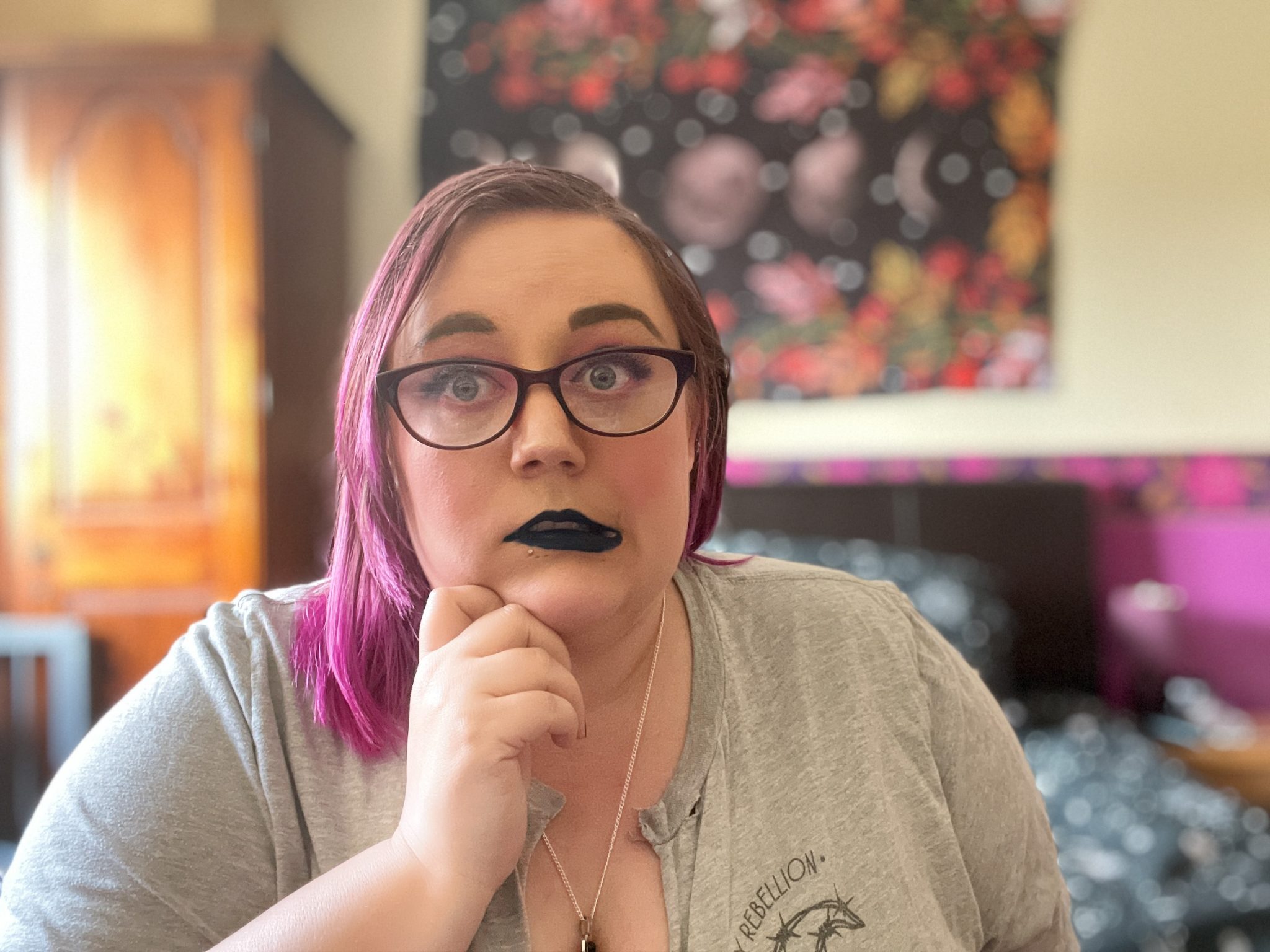For the last year or so I have opened up to friends and family, as well as writing about it here, that I think I am autistic and have adhd. I’ve talked before on my blog about my mental health and battles with low mood and anxiety but last year something really clicked for me which gave me the push to seek a conversation with my doctor. I am now on the waiting list for my area for an assessment and I do not know how long I will be waiting. This is difficult for me because whilst a lot of what I know of myself and have learned about adhd and autism is so very relatable but on the other hand actually telling people I am these things makes me feel like a fraud because I am not officially diagnosed. It makes me feel like I’m invalidating a space I haven’t really been allowed to step into. However, speaking with other friends that have gone through diagnosis and hearing how exhausting and complicated and stressful the process is their opinion on self diagnosis has really helped to change my perspective and the way I consider myself when meeting new people. I am still going to persue a diagnosis because I feel like I need it for my own validation but, for now, I feel like I can start stepping into a neurodivergent space and I hope I will continue to be accepted for it.
Challenging stereotypes
One thing I have heard repeated over and over is that ‘If you’ve met one autistic person, you have only met one autistic person’ because, as I am sure you have heard and read before it’s a spectrum disability. Every single autistic person I know is different, and does things differently. Some of them are very different to me, some of them share very similar traits and quirks, and some of them need a lot more support with their physical needs than I do. Being female I already challenge the stereotype that only boys and men can be autistic but if we have learned anything over the last few years particularly that is just simply not true.
A book I have recently began reading which I have found very relatable (and funny) is Drama Queen by Sara Gibbs – the first person I personally have read about that talked about being hyperverbal. A phrase I hadn’t really thought about before because being Autistic can usually present as social and communication challenges for individuals and is often thought to mean autistics are non verbal or can not communicate with others. Don’t get me wrong I know autistics that struggle to communicate, or don’t like speaking much but that isn’t me. Hearing the term hyperverbal and then learning a bit more about it made a lot of sense to me because I talk a lot, I talk quickly and I often say inappropriate things thanks to a lack of filter. I often struggle to ‘read the room’ so to speak. The way my social communication challenges present are that I often interrupt people because the words bubble up and I feel a real need to get my point across. I feel like if I don’t say what I’m thinking at that exact point I will lose focus and then lose my place in the conversation. I also do it because I want to relate to other people which means conversations with me are rarely simple and easy chit chat but instead, well, if I like you, you’re going to learn my life story in a short space of time which can be pretty overwhelming for others.
I don’t do this to cause harm and I often feel very guilty and like I am offloading on others. I don’t want to do that. I mostly just want friendships and connections but I don’t really know how to make friends as an adult and I have struggled to maintain friendships with people over the years because I also find them to be exhausting. I suppose that leads on to the other stereotype that autistics lack empathy. I can’t speak for everyone but I often feel things too much, very quickly, very deeply. If someone I care about is hurting it becomes almost like physical pain for me and I will want to do everything in my power to make myself accessible to them and to try and make them feel better. This in itself can be really overwhelming for them if they’re not ready for that kind of attention and I have to really try and hold myself back because I also struggle with something known as rejection sensitive dysphoria which is a common trait in those with ADHD. So I notice if someone’s behaviour around me changes and even though there is every possibility that it has nothing to do with me at all, I jump to the conclusion that I have ruined another friendship, or lost another person because I have been too much for them. It hurts, so much, and it’s exhausting.
Because of all this I feel very burned out on life right now. I am stuck in the sense that I can not get anything done and the bare minimum feels too much. Frustratingly assessment appointments waiting lists are years long so it feels like it will be a long time before I get the diagnosis I am hoping for. I feel like I’m stuck right now and I don’t really know how to make myself better. I am going to speak to my GP again soon and I’ve been having some CBT which I think for someone that is hyperverbal talking does help although I know I’m supposed to do something before the next session but I can’t remember what. I have heard so often that everyone is on the spectrum somewhere or similar and I just think that whilst some neurotypicals, for sure, share traits and moments of hyperactivity, inattentiveness and impulsivity it doesn’t derail and take over their life like it does mine. It doesn’t cause problems because they’re not chasing dopamine the way I am on a constant basis. This then leads to me getting frustrated and agitated easily, not sleeping properly, not coping with small changes in the day, and sensory overload. When my mood is low, all of these things become harder and harder to deal with.
The positives to my Neurodivergent Brain
When I hyperfocus it can be glorious. I can completely zone into something and work a lot of stuff out when I hit the sweet spot between doing something I enjoy and something I need to do. It makes me feel productive, accomplished and happy. I’ve been able to plan out six months worth of content for my blogs and social media when I’ve caught a tiny speck of inspiration and ran with it. I’ve been able to write continuously for hours and feel proud of my content creation. I can pick up things very quickly if I’m interested in them and I like to learn. I might get a little frustrated along the way but I will keep going until I get it right as long as I’m getting enjoyment from it. I am multipassionate and have a lot of hobbies thanks to impulse buying. No, I don’t always follow them through but I have a lot of interesting things to talk about. I have a lot of empathy and time for my friends, I can be really patient and understanding and a good listener. I have had to deal with my own trauma and I think that probably has an impact on the way I treat people.
So with all of that I can understand why some choose not to go for an official diagnosis because the process is long and exhausting and feels like a constant battle just to protect yourself and get yourself access to additional help and support with your healthcare professionals. Equally though, I am not sure what I will have access too after a diagnosis. Is medication an option for me if ADHD is part of my brain problems? Will it be worth the wait? I have no idea. All I know is I need answers for myself and why I feel like I don’t function the same way everyone else does.





